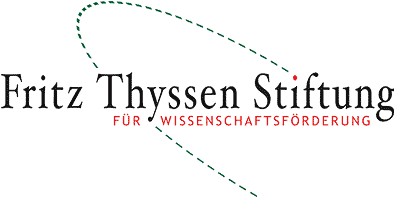

Governing Intellectual Property Claims
Conflicts about European directives on intellectual property rights and software-patents
Duration:
October 2006 - September 2008
Financing:
This project is supported by a research grant from the Fritz-Thyssen-Foundation
Administration:
Dr. Sebastian Haunss & Prof. Dr. Katharina Holzinger
Team:
Dr. Lars Kohlmorgen
Project Description:
In a global, informational economy intellectual property claims are gainin increasing importance. On the backdrop of globalization issues of access to knowledge, production of knowledge, and private or collective acquisition and control of knowledge are increasingly attracting political attention. The dominant »maximalist rights culture« of international organisations and agreements (GATS, WIPO, TRIPS) has lead to a mode of regulation of intellectual property claims that expands the protection of intellectual property in scope and depth. But with the increasing economical importance of intellectual property claims, political conflicts are emerging, contesting the structure, scope, and boundaries of existing legal frameworks of intellectual property rights (IPR) – especially in the field of green biotec, pharmaceuticals, genetic engineering, audio-visual and print media, and more recently also about patentability of software and business practices. In these emerging conflicts the dominant maximalist position is fundamentally questioned from two fronts. In the first three conflict areas the appropriateness of the equation »more protection of intellectual property = more economic success« is challenged through the introduction of »other« normative considerations like food security, public health, bio-diversity, or general ethical arguments. The fourth and fifth conflict area deals exclusively with intellectual property claims. In these areas the validity of the equation itself is questioned. In contrast to the mainstream assumption challengers claim that strong intellectual property rights will instead have negative effects on innovation and competitiveness. As an alternative to existing arrangements they propagate less rigid protection regimes (e.g.: only copyright and no patents for software, shorter protection terms, limited licenses, etc.) or alternative regulation modes (Open Source, Creative Commons, General Public License).
The research project focuses on those pure IPR conflicts. The research concentrates on two aspects: First, to identify and analyze the competing models of regulating intellectual property claims present in the debates, second to assess the chances alternative models of regulation might have in the European polity. To answer these questions the project analyzes the conflicts about two EU directives – the EU directive on the enforcement of intellectual property rights (IPR Enforcement Directive) and EU directive on the patentability of computer-implemented inventions (Softwarepatent Directive). The study aims to explain why in the first case the decision making process followed the dominant maximalist rights culture, while in the second case the arguments of the proponents of alternative regulation modes have been heard.
Starting from the assumption that, as a result of parallel decision-making structures and nearly identical time-frames, the differences between these decisions can not be explained at the institutional level, the research project will search for answers on three other levels: actor constellation, framing/argumentation, and forms of action. It will examine which actors in which alliance structures have tried to influence the decision-making process, which arguments have been put forward in favour of or against the respective directive and in which meta-discourses the actors have embedded their actions and argumentations, and finally which forms of action the actors have chosen.
To examine these three factors – argumentations, networks, and forms of action – the project employs methods of political claims analysis, framing, and social network analysis.
